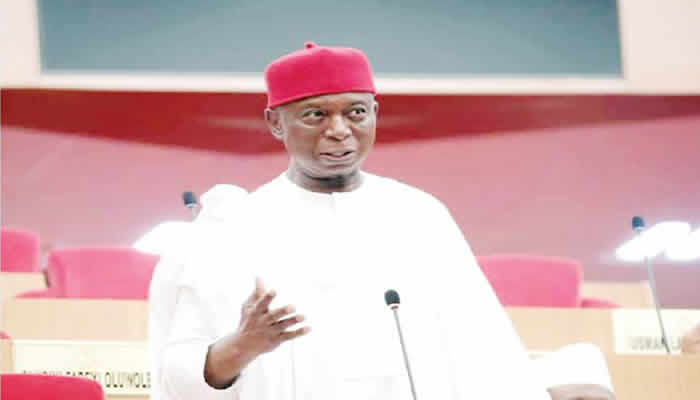Anioma’s Untapped Potential: A Case for Statehood
The Anioma region of Delta State, Nigeria, is quietly emerging as a significant player in the nation’s oil and gas sector. While often overlooked, this culturally rich area possesses vast untapped resources, potentially making it the fifth-largest oil and gas reserve in Nigeria. This economic reality fuels a renewed push for the creation of Anioma State, a move proponents argue is not merely a political aspiration, but a matter of economic justice and resource control. The region’s current contribution to Nigeria’s energy sector is substantial, with existing oil fields like Umusadege, Okpai, and Kwale already producing significant quantities of crude oil and natural gas. However, much of Anioma’s potential remains dormant, with numerous undeveloped fields and a lack of downstream industries like refineries and petrochemical plants. This untapped potential, coupled with the region’s significant agricultural output, forms the core of the argument for statehood. Advocates believe that with administrative autonomy, Anioma can effectively manage its resources, stimulating economic growth and development within the region.
Anioma’s oil and gas reserves are not just hypothetical; they are a present reality with tangible contributions to Nigeria’s energy output. The Umusadege field, operated by a consortium of international companies, is a prime example, producing over 12,000 barrels of crude oil per day, alongside substantial gas and condensate reserves. The Okpai gas field plays a crucial role in powering the national grid and fueling LNG exports, while the Kwale field contributes significantly to Nigeria’s overall gas production. These are just a few examples of the active fields currently contributing to the nation’s economy, highlighting Anioma’s significant role in the energy sector. Yet, despite this substantial contribution, Anioma lacks the infrastructure and development befitting its economic status. The region’s residents often lack basic amenities like access to clean drinking water, while their resources are piped elsewhere, enriching other parts of the country. This disparity underscores the urgency of the call for statehood, as proponents believe it will empower the region to control its resources and direct development efforts towards its own communities.
Beyond the currently producing fields, Anioma holds even greater potential in its numerous undeveloped oil and gas reserves. Fields like Adofi River, Isheagwu, Nsukwa, Oko, and Matsogo are projected to yield substantial output once developed, further boosting the region’s economic prospects. The vast gas reserves in fields like Egbaoma, Obiofu, and Ashaka represent another untapped opportunity, particularly for the development of downstream industries like petrochemical plants and fertilizer production. This potential extends beyond the energy sector, encompassing agriculture as well. Anioma is a major producer of agricultural products like cassava, fruits, and vegetables, but a lack of processing infrastructure leads to significant post-harvest losses. Establishing processing plants and cold storage chains could significantly enhance the value of these agricultural products, creating jobs and further diversifying the region’s economy.
The call for Anioma State is not merely based on economic potential. It is deeply rooted in historical grievances and a desire for self-determination. The Ekumeku War, a series of uprisings against British colonial rule, left a lasting impact on the region, shaping its political and social landscape. The fragmentation of Anioma across multiple local government areas is seen as a consequence of colonial policies aimed at suppressing the region’s identity and unity. This historical context informs the current push for statehood, which is viewed as a means of reclaiming control over their destiny and correcting historical injustices. The struggle for unity and recognition is a central theme in Anioma’s history, and the current advocacy for statehood is seen as a continuation of this long-standing quest.
Senator Ned Nwoko has emerged as a prominent voice in the campaign for Anioma State, advocating for the region’s right to manage its own resources and achieve administrative independence. He argues that Anioma’s contribution to Nigeria’s oil and gas production warrants greater recognition and control over its resources. His advocacy is rooted in the belief that Anioma’s economic potential, coupled with its historical grievances, justifies the creation of a separate state. Nwoko’s efforts have brought renewed attention to the issue, galvanizing support within the region and beyond. His arguments resonate with many Anioma people who believe that statehood is not a privilege to be granted, but a right to be claimed.
The push for Anioma State is not just a local issue; it is a national conversation about resource control, equitable development, and the very structure of the Nigerian federation. Anioma’s substantial contribution to the national economy, coupled with its historical grievances and untapped potential, makes a compelling case for statehood. The region’s advocates argue that they are not seeking handouts, but the opportunity to control their resources and chart their own development path. The creation of Anioma State is not merely a political ambition, but a matter of economic justice and self-determination. The question now is whether the Nigerian government will heed the call and recognize Anioma’s rightful place in the nation’s tapestry.














